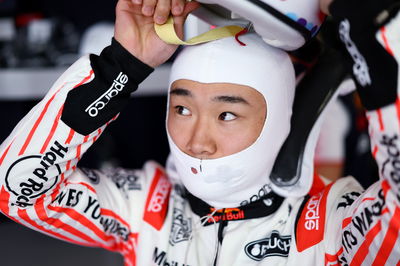Traction control to be voted on today.
While, for many, the issue can only promote a foregone conclusion, the F1 Commission meets to discuss the future of traction control systems in Monaco today.
When the systems were granted a reprieve by FIA president Max Mosley two weeks ago, Formula One insiders understood that nothing could stop them from being reintroduced wholesale for 2001. Whilst the majority of teams appeared to be in favour, however, there has been enough of an outcry from the drivers to possibly make the Commission think again before ratifying the decision.
While, for many, the issue can only promote a foregone conclusion, the F1 Commission meets to discuss the future of traction control systems in Monaco today.
When the systems were granted a reprieve by FIA president Max Mosley two weeks ago, Formula One insiders understood that nothing could stop them from being reintroduced wholesale for 2001. Whilst the majority of teams appeared to be in favour, however, there has been enough of an outcry from the drivers to possibly make the Commission think again before ratifying the decision.
Technical directors and designers the length of the pit-lane have allowed that the re-introduction is a necessary evil, if only to avoid the allegations that one or more team may be 'cheating' by employing hidden systems to replicate the effects of traction control. These suspicions led to the reworking of the old pit-lane speed limiter systems, because fingers were pointed at possible means of using the technology involved to create a means of measuring wheelspin, and the FIA has all but announced that illegal systems cannot be properly policed.
David Coulthard, however, spoke out against the reintroduction during this week's test session in Jerez, claiming that artificially controlling wheelspin would take away one of the biggest divisions between good and average drivers. Heinz-Harald Frentzen has admitted that the technology makes the cars easier to drive, and especially in the wet - which always used to be a good indicator of talent.
"With traction control, you just have to point the car in the right direction and step on the throttle," the German explained, "Although it will never turn a bad driver into a good one, it can make him look better than he is."
Even ex-drivers have voiced their concerns, although one, in particular, has mixed emotions on the subject. Gerhard Berger tasted traction control in the twilight of his career, and cared little for it, but admits that, with his BMW hat on, it is another interesting challenge for the German company.
Frentzen and Coulthard were joined in their opposition by Ferrari rival Rubens Barrichello, who told the Reuters news agency that he thought the return of traction control would not allow drivers to enjoy the sensation of attempting to control an F1 car on the limit.
"I think that traction control will not be good for pure driving," the Brazilian said, "That is what I like, and it is one of the most enjoyable parts [of being a grand prix driver]. It will be a shame if it happens."
Barrichello also admitted, however, that the systems would be good for one thing - eliminating the paddock suspicion that some teams may be using illicit means of limiting wheelspin.
"A lot of people believe that some teams are already using traction control, and I am all for equality," he explained, "It is important for the cars to be similar and if, to do that, we have to have traction control, then that is the way it has to be."
This is what the F1 Commission will meet to discuss in Monaco. The issue is not so much whether traction control will improve the spectacle because, in all honesty, the FIA would admit that it probably won't, but the matter of cheating needs to be seen to be being addressed.
A decision is expected later today [Thursday], and could open a new can of worms should it ratify Mosley's earlier opinion that traction control be introduced. Sources earlier this week suggested that, should traction control make a return, it could pave the way for greater numbers of driver aids to make it into the F1 rule book.
The increasing involvement of the major manufacturers is expected to lead for a push for greater technology. Speed limiters are already being proposed as a safety device on road cars, and other systems, including active suspension and torque-steer systems could soon be a part of the F1 vocabulary once again.










